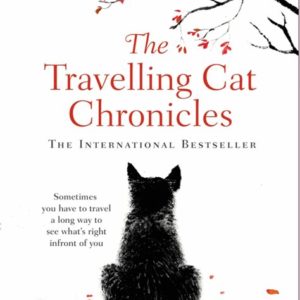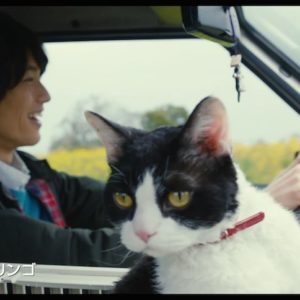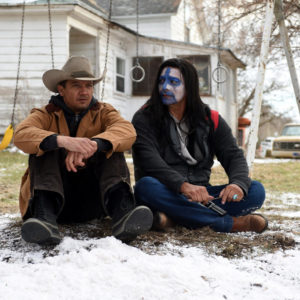Sad ones
David Patrick Moynihan said, “To be Irish is to know that in the end, the world will break your heart”. I suggest that for a man of Irish roots, Moynihan is a bit of an optimist. Seems the world begins vigorously passing around its buckets of sorrow a little earlier than “the end”.
I don’t know if our karass (see Vonnegut for karass detail) needs any more sad stories, but I am confident a wise person would murmur something about how sorrow and sadness is essential for a life’s journey. I’ll reluctantly agree with this notion today, but no guarantees on how I’ll feel about it tomorrow.
Here are two well-crafted and sad books I recently read. Both deal in the random visitations of sorrow and loss, brutalizing characters with tender hearts and precious few resources.
The Travelling Cat Chronicles by Hiro Arikawa is a tale told by a cat. Okay, so animal narrative voices are often cheesy and gimmicky. But this one works. Maybe because this story is told simply and with a hint of cat crankiness in a voice so true it’s as if Arikawa has a second skill, cat channeling.
The heart of the story is this, Nana, a homeless tomcat, is rescued by a sweet soul named Satoru, who lives in Tokyo on his own. Once Nana and Satoru come to terms that they need one another (Nana is injured when the two first meet), the young man and cat live together for many years in contented domesticity. Then abruptly one day Satoru tells Nana they will be taking a journey together because as Satoru informs, “we can’t live together any more”.
Nana is dismayed he is not given a reason why but settles in to the road trip with his resilient cat heart.

The story progresses with visits to three friends of Satoru’s who offer potential future homes for Nana. The pair discuss the options together when they are off alone, but of course not one meets the standard of Nana’s current home with a precious shared history and mutual devotion. Their road trip crisscrosses Japan in autumn. Nana takes detailed note of the light and colors and finds joy in the adventure as he develops a deeper understanding of Satoru’s past and his gentle ways.
“How could I ever leave him?” wonders Nana as his inherent cat stoicism begins to fail.
There are insights into Japanese culture and traditions throughout the story and little else has fed my desire to visit Japan than this book. But more importantly, I was amazed at how this simple tale was able to convey the universal experience of true friendship and what we will do for those we come to love –cats and humans alike.
Read this book and be prepared to call for Kleenex but don’t forget to count your lucky stars if you have had a similar life connection. This book was recently made into a movie, but I am not sure if we will see it in the US. Clips are on-line.
The title of the memoir Heartberries by Terese Marie Mailhot gave me the visual creeps but after hearing the author interviewed on radio, I knew I had to read it. But before we get there I want to talk about the movie, Wind River.
Wind River was released in 2017. It’s a modern western procedural set in cold cold Wyoming. Briefly the story is about a federal wildlife officer, a tracker, who works on the Wind River Indian Reservation. On a winter’s day the tracker finds a body of a young native women in the mountain snow. She is dead of course in the awful cold and her skull is beat in and she has been raped. She is found barefoot and the tracker sees her footprints and blood for miles. He takes time to acknowledge her warrior spirit before acting by bringing in additional help. It’s a good movie, violent certainly, but does a fine job telling a story about people we don’t hear much about in present time. I also learned something when the makers ran a note at the end of the movie. For Native American woman, the note informed, there are no statistics kept on the missing even though for every other demographic group this is standard. Consider that and the message it conveys to Native woman.

Heartberries is a young Native woman’s story of her past which was replete with trauma and abuse. I bought this book because when I heard Mailhot interviewed on public radio her words stuck with me. She said this about forgiveness in that interview, “in white culture, forgiveness is synonymous with letting go.” But, Mailhot went on to explain, in her culture people carry pain and reconcile with it through ceremony which means, “pain is never framed like a problem with a solution.” This book is Mailhot’s ceremonial reconciliation of her life’s journey.
Mailhot’s life was horrible, she was neglected, sexually abused, and married young only to escape into another awful family situation. She herself was horrible, she admits that in this book, sparing no kind words for herself.
Part of Heartberries was written in a mental hospital where Mailhot was recovering from a breakdown. Her writing is lyrical throughout this slim book, maybe too much so, but it may have been the only way to dull the retelling of her vicious life. Even with her lyrical writing, this book was hard for me to face each night. But her story deserves to be heard.

Mailhot’s book does not look for solutions to changing the long arc of abuse and neglect of Native American women but it does move the discussion further into the light. I hope we hear more from her.

